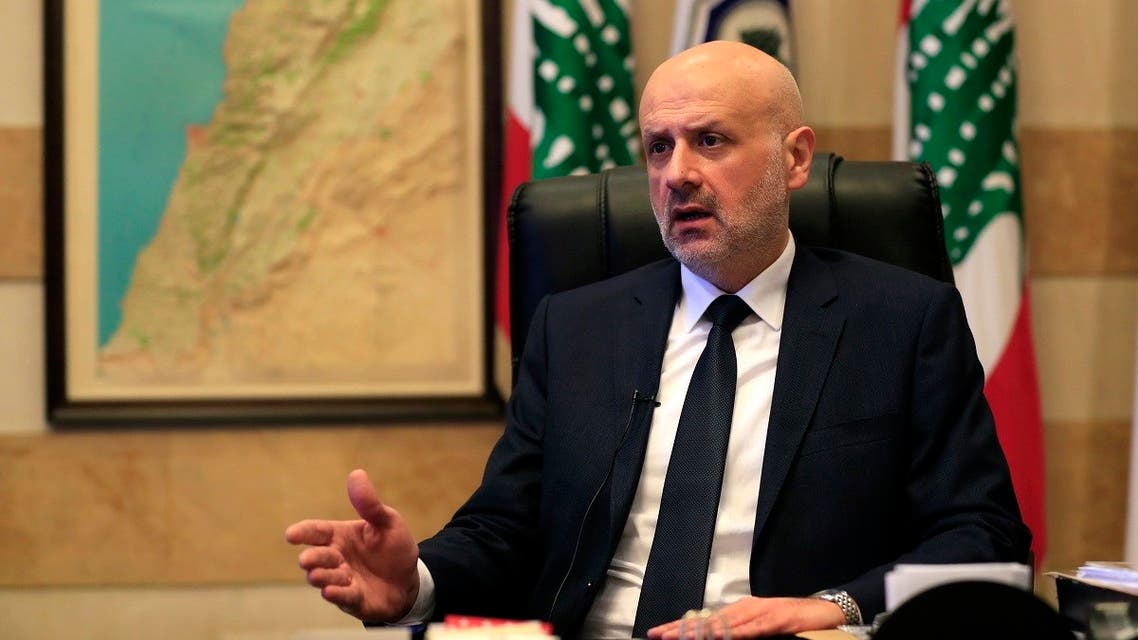
Lebanon Interior Minister
by AP — Lebanon’s interior minister said Tuesday that every delay in resolving the diplomatic crisis with Gulf nations threatens to affect the lives of more Lebanese already reeling from a massive economic crisis. Bassam Mawlawi said resolving the crisis begins with the resignation of the Cabinet minister whose comments sparked the ire of Saudi Arabia, calling it long overdue. For the latest headlines, follow our Google News channel online or via the app. Saudi Arabia, a traditional ally of Lebanon, withdrew its ambassador and asked the Lebanese envoy to leave last month following televised comments by George Kordahi, Lebanon’s information minister. Kordahi said the war in Yemen was futile and called it an aggression by the Arab Coalition. Yemen’s war began with the 2014 takeover of Sanaa by the Houthi rebels, who control much of the country’s north. The Arab Coalition entered the war the following year determined to restore the internationally recognized government and oust the rebels.
Kordahi recorded the comments weeks before he was named minister and has refused to apologize or step down despite appeals from many, including the prime minister. Lebanese officials have said his remarks do not represent official government views. “This is taking a long time. It should not take more than a month to be resolved,” Mawlawi told The Associated Press. “He should have resigned before. He should have resigned immediately. … Every delay causes more grave damage to the Lebanese, whether those in Lebanon or in the Gulf.” Bahrain, The United Arab Emirates and Kuwait followed Saudi Arabia and also recalled their ambassadors. The Saudis have also banned Lebanese imports, affecting hundreds of businesses and cutting off hundreds of millions in foreign currency to Lebanon, which is already facing a major economic meltdown.
Mawlawi warned the Saudi import ban could be expanded to curtail all trade with the Gulf nations, which could also undermine the employment or residency of Lebanese living in the oil-rich nations. The livelihoods of over 350,000 Lebanese living in the Gulf nations are at risk. “We should not wait until the noose is tightened around all the Lebanese people’s necks so that we take measures that we could have taken earlier and that could have been easier,” he said. “I think the delay makes the crisis more complicated.” Mawlawi said Kordahi is not resigning because he needs the approval of his political backers, including the powerful Iran-backed Hezbollah, which has criticized the Saudi pressure. The standoff has paralyzed the government, which has been unable to convene for weeks. Prime Minister Najib Mikati can’t dismiss Kordahi without the approval of two-thirds of the Cabinet. Mawlawi called on Mikati to do so if he can secure the votes. “The government must take initiative. I don’t think the government should wait for any initiative or steps from the Gulf countries,” he said. Mawlawi acknowledged the crisis with Gulf nations precedes Kordahi’s comments.
Saudi Arabia took the first punitive measures against Lebanon last spring after it announced it had seized over 5 million pills of the amphetamine drug Captagon hidden in a shipment of pomegranates coming from Lebanon. Then, it banned the import or transit of Lebanese produce through its territories. Two suspected smugglers were arrested in May. Mawlawi said he has already ordered tighter security measures at border crossings to prevent smuggling and said an investigation into the smuggling ring continues. “Lebanon continues to cooperate (with Saudi Arabia on the probe) but we have not reached the results we expect,” he said. “We must reach a conclusion in cooperation with the Saudi authorities to figure out what all the details of the issue that threaten the security of Saudi Arabia and Arab communities.”



